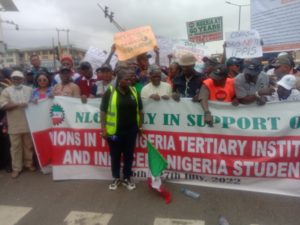Lockdown affecting 94% workers, businesses –ILO

The International Labour Organisation (ILO) yesterday said COVID-19 causes unprecedented jobs crisis, as almost all workers and businesses, about 94 per cent, are affected by lockdown measures by different countries.
The United Nations Secretary-General is calling for immediate support for at-risk workers, enterprises, jobs and incomes in a new policy brief on the world of work and COVID-19, prepared with the ILO.
According to the UN Secretary-General’s Policy Brief on the World of Work, almost all of the world’s workers, some 94 per cent, were living in countries with some type of workplace closure measures in place in May 2020.
Massive losses in working hours, equivalent to 305 million full-time jobs, are predicted for the second quarter of 2020, while 38 per cent of the workforce – some 1.25 billion workers – is employed in high-risk sectors.
The brief says small and medium-sized enterprises – the engine of the global economy – are suffering immensely and many may not recover, while those living in developing countries and fragile contexts face the most dramatic risks, in part because they have least resilience.
The Policy Brief, which is based on data and analysis from the International Labour Organisation (ILO), warns that many of those people who have lost their jobs and livelihoods in recent months will not be able to re-enter labour markets any time soon.
The ILO noted that women have been particularly hard hit. “They are disproportionately represented in high-risk sectors and are often amongst the first to lose employment and the last to return. Persons with disabilities, already facing exclusion in employment, are also more likely to experience greater difficulties returning to work during recovery. “The world of work cannot and should not look the same after this crisis. It is time for a coordinated global, regional and national effort to create decent work for all as the foundation of a green, inclusive and resilient recovery,” said António Guterres, UN Secretary-General.




